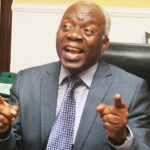On the 30th of April, 2020 news filtered out that President Buhari had given final approval for the implementation of the Steve Oronsaye committee report; a report which was commissioned by late President Umaru Musa Yaradua to look into the proliferation of government agencies, many with duplicated or lavishly overlapping functions. At some point, the figure we had was 541 of them, whose effects were almost unfelt by the citizens of Nigeria. Since that time, a few more parastatals had been created since their prime movers managed to justify their existence and urgency through our political system. New institutions are often rammed through the system using political power. Oftentimes, these institutions start as temporary solutions to pressing problems, but we know that given an inch, Nigerians prefer to take the mile. Temporary institutions soon start shopping for ultramodern headquarters to buy, with concomitant heavy deals, and employment into them become political favours to powerful men who will guarantee the existence of such agencies into perpetuity. Another moribund agency is born, to suck on the thinning lifeblood of a nation laid prostrate.
I also recall that it was the same Oronsaye, given free rein by President Yar’Adua who introduced an 8 years tenure for permanent secretaries and directors in all of those agencies. I know people who hate Yaradua’s guts for the reforms he tried to bring to the service. Oronsaye himself got cooked for some underhand deals he made while Head of Service. His cases are probably still ongoing or left in the cooler for anytime he says something untoward or starts to feel comfortable. Umaru Musa Yar’Adua, coincidentally died exactly 10 years ago, after a battle with ill-health. Many who occupy seats in government today, as well as those in civil society, had teamed up to hound the gentleman president out of office. We did not see what he tried to do then, and the fact that he died a hero for this country. Yar’Adua did halt some privatization deals he felt were fraudulent, reverted VAT from 10% to 5% and Petrol prices from N75 back to N65 in defiance of his boss, Olusegun Obasanjo, who had increased these on his way out. He performed magic on the Niger Delta crisis too.
A few governments have come and gone since the Oronsaye Report was submitted. But Nigeria has now hopefully arrived at a junction where we need to do the needful. With a collapsed revenue profile in the middle of a global health and economic meltdown, Nigeria has hopefully finally received the memo that we cannot continue along our profligate ways. The current government is saddled with the implementation of the Oronsaye Report – as amended – as part of efforts to streamline expenditure and save Nigeria from tipping over into a painful fall off a fiscal cliff. The questions are; can we really help ourselves? Will this effort not be hijacked by political considerations? Is the Oronsaye Report flawless and if not, what will be done about the flaws? More importantly perhaps is the question of whether indeed our public service is too large as most people believe or whether it is instead merely dysfunctional, inefficient, top heavy, skewed and distended in a funny manner, and lacking in focus on service delivery and service excellence towards the people.
I will also add, that Nigeria should be careful about shrinking when we should be expanding. This is certainly not the time to be folding over and crawling into our shells. Every nation is faced with the binary option; to shrink in fear, and risk being killed wholesale by Covid19 and its economic after effects, or to stare down the disease and position to be a winner afterwards, by tapping into inner strength in order to emerge bigger, stronger, more determined, when all this is over. I will continue to urge Nigeria to join the latter group as I have in all my articles since this COVID saga started. We can already begin to position as winners by engaging our mental faculties in the few meetings that are going on, online and offline. I have continued to tell people, that critical meetings are ongoing, and a handful of important people are still running the country. I have made myself very available because I love to be part of any solution. I am not very good with articulating problems and why things will not work. From get go I have told anyone who cares to listen that this is not the time to tear each other apart for past mistakes. No right-thinking nation can afford that luxury at present. If there is a time for national unity – and even the unity of whole races and continents, nay the world, this is it!
Let us attempt some answers and suggestions to some of the above questions. These are the issues that government must have in mind as it implements the Oronsaye Report. Most of the issues are known to government anyway, but they bear reiteration, just so that we get our input into the policy formation as outsiders and ordinary members of the public:
- MINIMISE JOB LOSS – Whatever the government does, we must ensure that the exercise does not necessarily result in mass job losses. As the government as shown with the interventions proposed for MSMEs and others, this is a time to ensure that people continue to have some income from month to month. Inflation will spike, and the economy may stagnate at the same time if we are not careful. Sending people out into the unemployment market at this time will be counterproductive, procyclical and it will deepen an already debilitating crisis. It is important to quickly speak up on this because the implementation is likely to be done by people with ‘private sector mentality’ who only see figures and not families and human beings. Chances are that a foreign consulting firm will do the hatchet job. Kadan kadan my people.
- NIGERIA’S PUBLIC SERVICE TOO SMALL – Flowing from the above, is the FACT that indeed Nigeria’s public service is not too large, but too small. I have labored hard to prove this fact in times past. The percentage of the workforce employed in the service is hardly 4% – at federal, state and local government levels, including parastatals. Nigeria’s population is about 200million. Even if 160million, our workforce (people between 18 and 65/70) should be close to 100million. The numbers we have in the entire public service is not up to 4million. Anyone can check that in the USA, 17% of the workforce works DIRECTLY for government. In the UK it is 21%. In most of Europe it is over 20%. In the Scandinavian nations it is an embarrassing 35% on the average. In South Africa it is 17%. The lower the number, the closer a nation is to being a failed state. It is only in Africa that we find figures like 3%, 4%, 8%. This is absolutely critical because COVID19 alone showed how easily nations can deploy assistance to their people given a solid public service system. We have been flailing on this in Nigeria. Our public service hasn’t actually started. See my previous article at https://opinion.premiumtimesng.com/2017/11/14/the-jobs-nigerian-governments-refused-to-create-by-tope-fasua/. It is the strength of the public service that has sustained most countries pulling out of this crisis as winners. The biggest employer in the UK is the National Health Service, which employs at least 1.7million people. See how they took care of their Prime Minister when he was hit by COVID 19?
 Join Daily Trust WhatsApp Community For Quick Access To News and Happenings Around You.
Join Daily Trust WhatsApp Community For Quick Access To News and Happenings Around You.


